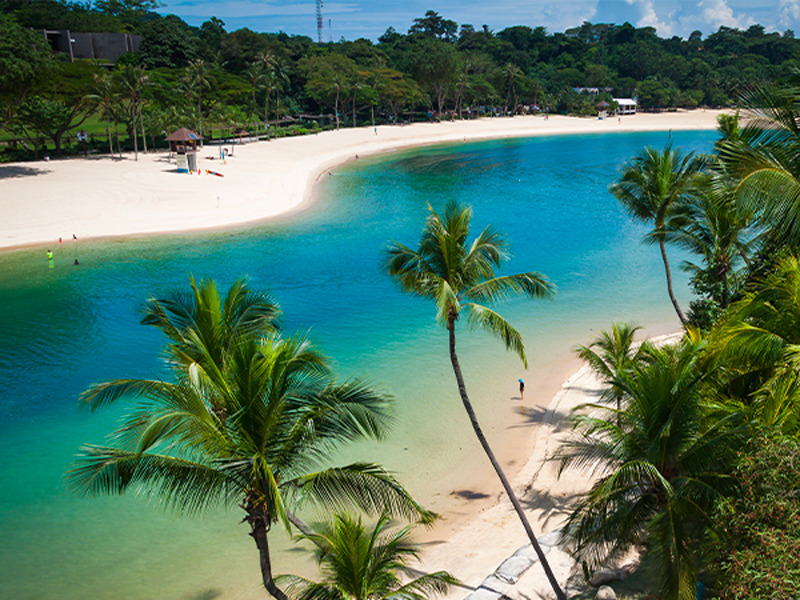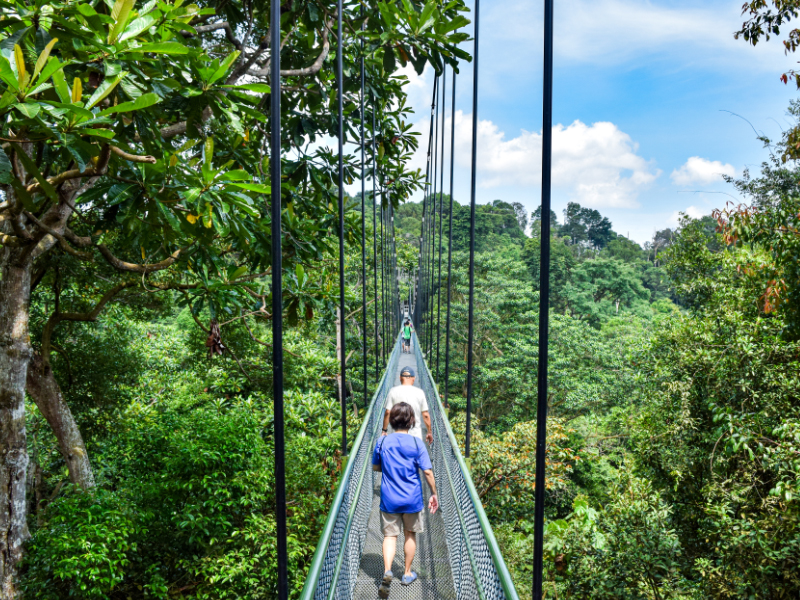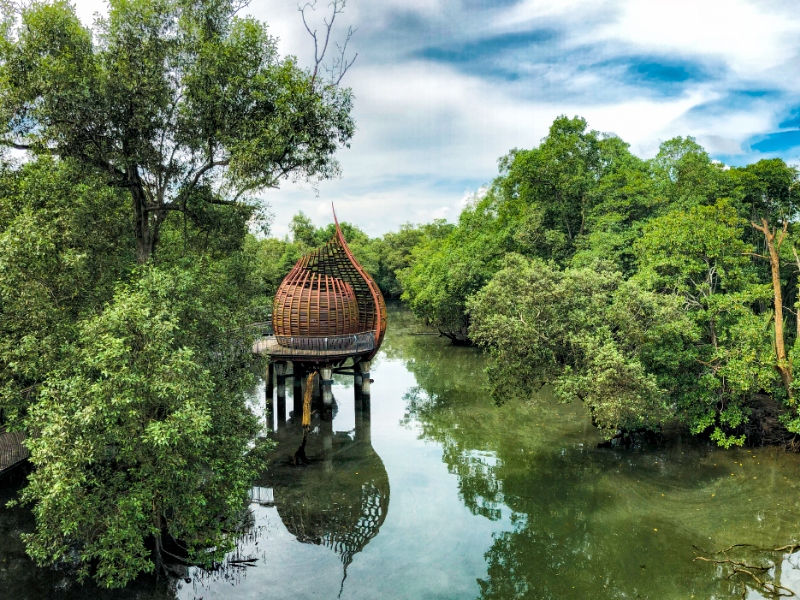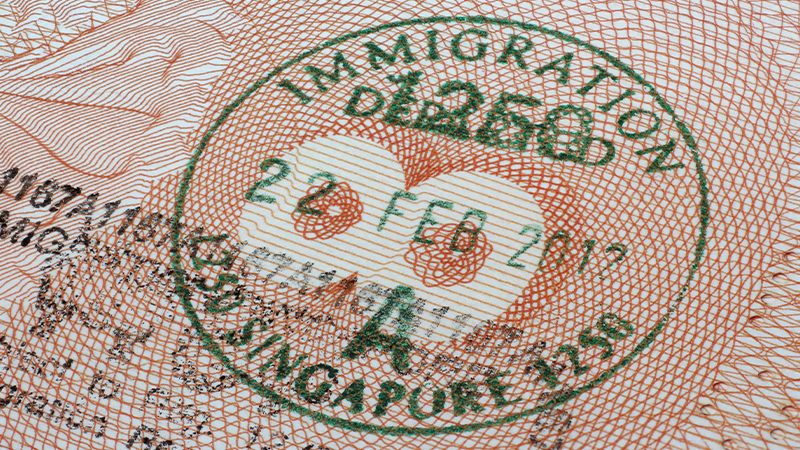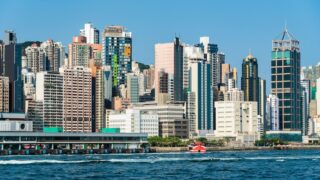As the world’s cogs start turning once again and travel restrictions ease, global relocation between the likes of the US, the UK, Europe, Australia, Dubai and other popular destinations is picking up pace. If you’re weighing up your next post after Hong Kong yet you’d prefer to stay in the region, you may want to consider living and working in Singapore. Here’s a look at a few reasons why, along with tips and first-person perspectives on moving to Singapore from HK.
Some benefits of moving to Singapore
Safety
If there’s one mantra you’ll hear repeated again and again when it comes to the pros of living in Singapore, it’s safety. Indeed, The Economist’s Safe Cities Index has ranked Singapore among the top three safest cities in the world in all four of its reports since launching the Index in 2015. This includes the most recent 2021 report, published amidst the pandemic – an indication of the positive perceptions of Singapore’s handling of the COVID-19 crisis. Now, in 2022, the city continues to make big strides along its roadmap out of restrictions.
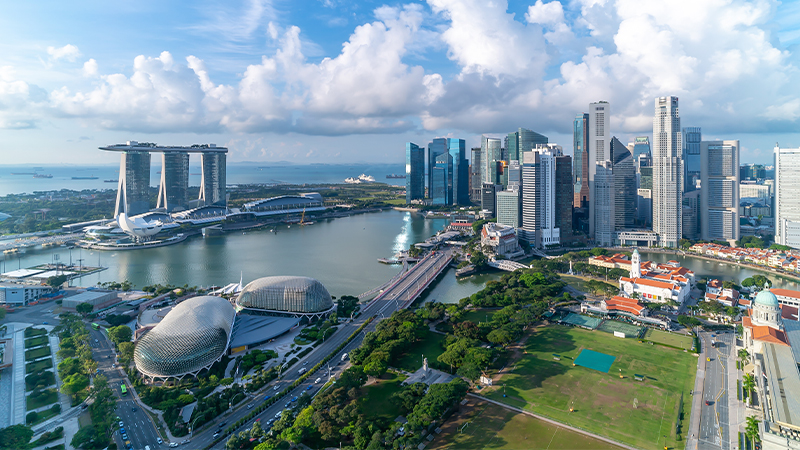
Business opportunities
Singapore regularly tops world rankings when it comes to criteria like competitiveness, stability and economic freedom; it also has a reputation for being a very easy place to start a business. And with all that comes a low personal and corporate tax rate. No surprise, then, that the number of Fortune 500 companies based in Singapore quadrupled between 2000 and 2015, and now makes up over a third of the Fortune 500 list. The city-state is currently home to as many as 4,200 regional headquarters. It’s also an emerging tech hub; nine unicorns (new businesses valued at more than US$1 billion) were minted here in 2021 alone.
Needless to say, Singapore has a vibrant ecosystem for business opportunities and career prospects, making it an appealing city for relocating talent; a 2021 survey by Boston Consulting Group found it to be the most attractive destination for digital talent in all of Asia, and second only to London globally. The city also consistently ranks as the best in the region for expats – and it placed fifth in the world (out of 66 cities) in a 2020 poll by InterNations.
Outdoors lifestyle
After moving to Singapore, many newcomers are surprised by the city’s greenness. Despite its small size (a third smaller than Hong Kong), there are 24 official Nature Areas and Nature Reserves. These include the likes of the Singapore Botanic Gardens – over a century and a half old – and Bukit Timah Nature Reserve, the island’s largest piece of primary forest and home to more than 840 varieties of flowering plant and 500 animal species.
And it will only get greener. In 2020, the National Parks Board announced plans to transform Singapore from “a city in a garden” to “a city in nature”. The aim is to unveil 200 hectares of new parks, nature ways and park connectors by 2030, and to protect 70 new species of flora and fauna.
Add year-round warm weather to the mix, and the result is a very outdoorsy place. Cycling, running and hiking are all extremely popular pursuits in Singapore, with plenty of opportunities for water sports, beach activities and boating too.
Food
Singapore’s hawker culture was recently added to a UNESCO list of international items that represent the world’s cultural heritage. No surprise, really. The oldest hawker centre, Lau Pa Sat, has been around for nearly two centuries. There are a whopping 14,000 hawker stalls in Singapore today, serving an incredible range of dishes! You’ll find everything from the ever-popular chicken rice to more exotic offerings such as sambal stingray and oyster omelettes. And, at less than S$5 for a satisfying meal at most places, what’s not to love?
If you want to step things up a notch, dip a silver spoon into Singapore’s fine-dining scene. It’s a scene that continues to flourish year on year. Currently, there are 49 Michelin-starred restaurants on the island; that puts Singapore in the top 10 globally for most starred restaurants per capita. The newest entry to the esteemed three-star group is Zén; located in the foodie Tanjong Pagar neighbourhood, it combines Nordic and Japanese influences.
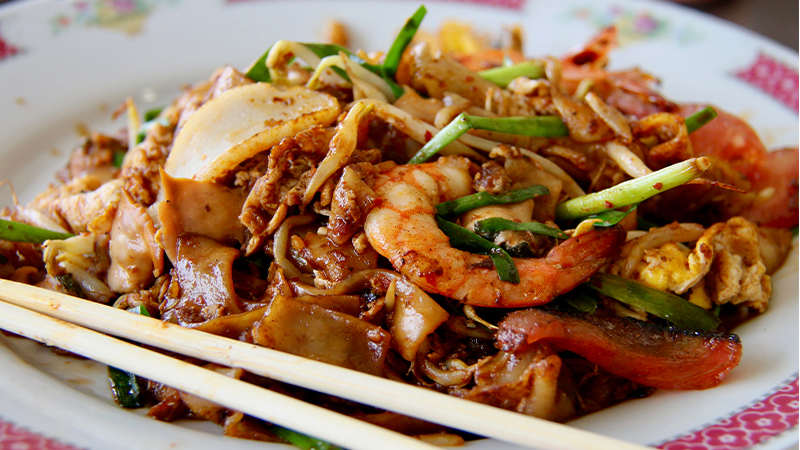
Heritage
Food is just one aspect of Singapore’s colourful heritage. Thanks to the wide mix of ethnicities, religions and languages – four official languages, in fact – the island is home to an array of traditions, festivities and historic buildings. The list of national monuments sees Christian churches taking their place alongside Hokkien temples, mosques, old military forts, Hindu temples and historic hotels. (Raffles being the most famous, of course!) And different communities come together to celebrate all kinds of annual events, from Chinese New Year to Deepavali, and Hari Raya Puasa to Christmas.
One feature of Singapore’s architectural heritage that appeals to many expats is the proliferation of colonial-style homes across the island. These include shophouses, and the famous black-and-white bungalows, which were built a century or more ago and remain in small clusters in different neighbourhoods.
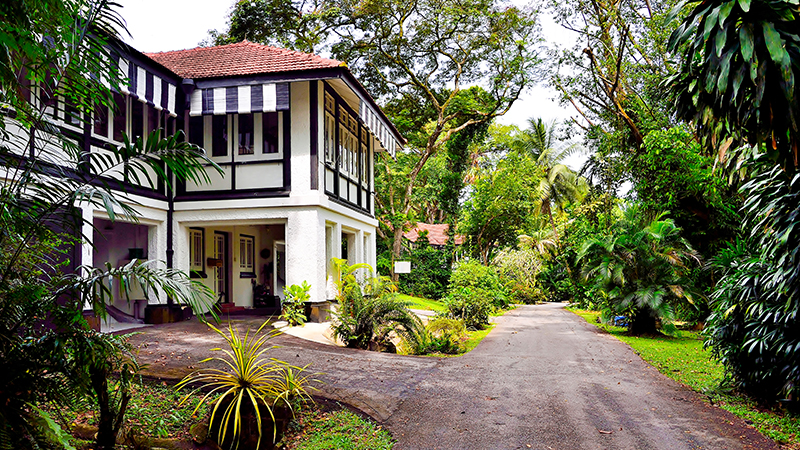
Schooling
Singapore’s family-friendly qualities are matched by a world-leading education network. There’s a huge number of international schools – at least 80, in fact. Around half of those are International Baccalaureate (IB) schools, with 30 offering the IB Diploma Programme (IBDP). You’ll also find schools following curriculums and teaching systems from the UK, US, Australia, France, Germany, India and elsewhere. And new international schools seem to open every year (four new ones launched in 2020 alone).
The upshot of all this? Securing a place for your child is an easier process than you might expect; yes, a few of the more well-known schools may have waiting lists, but there are plenty of options across the island; these are not only numerous, but also high quality, with teaching approaches that are as highly regarded by families as the bigger profile schools.
Local schooling is also an option – and the fees are considerably lower than at international schools; having said that, there are some fairly strict admission obstacles for expats to get around. Do your research and decide what’s best for you.
For a more in-depth guide to schooling in Singapore, including the experiences of Hong Kong families who have relocated, check out the article here.
What to keep in mind when moving to Singapore
If you do decide on a move to the Little Red Dot, you’ll need to plan ahead.
Asian Tigers Group provides international relocation solutions for more than 16,000 families each year, including regularly moving families and individuals from Hong Kong. They’ve received more than 100 requests for moves from HK to Singapore in the first quarter of 2022 alone. That’s why they suggest you start early. “We recommend our customers start preparing their move as soon as they know they need or want to relocate,” says the Asian Tigers team. “Especially during the pandemic, things like quarantine, delayed shipments and city lockdowns can disturb your relocation plans.”
What’s more, issues around COVID-19 can affect not just your items in a relocation but your own personal movements too. “Flight schedules and changing quarantine policies can alter your relocation plans completely,” adds the Asian Tigers team. “You may need to pay extra for changing flights and accommodation.”
Bringing your helper with you
The availability of full-time helpers in Hong Kong is a great advantage for many families; it can be a blessing for those in busy households who struggle to find time for all the household tasks. If you’re living in Singapore, you’ll enjoy a similar kind of setup, with affordable domestic help readily available. This includes the opportunity to have a live-in helper to assist with shopping, cooking, cleaning and childcare.
You can also bring your existing helper from Hong Kong to Singapore, if you prefer. According to the team from online service platform HelperChoice, there are certain requirements that need to be fulfilled for this, including obtaining what’s known as an IPA (In-Principle Approval). “Upon arrival in Singapore, once you’ve been issued with a work permit or long-term visit pass and you have a SingPass account, you can proceed to apply for the IPA to bring your helper in.”
Since you need to obtain your own passes and permits and then go through the application process while on the ground in Singapore, your helper won’t be able to travel with you on the actual moving day; but she can follow later.
Taking a pet
What about moving your beloved pet from HK to Singapore? There’s a comprehensive checklist for bringing a dog or cat into Singapore at the Animal & Veterinary Service website. You can check everything there, from whether your breed of animal is allowed in, to vaccination requirements. Dogs and cats coming from Hong Kong require valid vaccinations for various diseases and conditions, supported by documentation on arrival.
The good news is that pets from Hong Kong aren’t required to undergo quarantine; they just need to meet the relevant veterinary condition and be deemed clinically healthy on arrival. You’ll also need a suitable animal container to house your dog or cat for the journey; the International Air Transport Association website has guidelines on these.
Getting visas and passes sorted
Will you be working in Singapore when you relocate? You’ll need a valid pass (called a work visa) before starting. If your company is moving you to Singapore, they’ll most likely arrange this on your behalf; if you’ve found a new job opportunity, your future employer will make the application. The process for employers has recently been made easier, too; the latest updates by the MOM (Ministry of Manpower) included the removal of all entry approval requirements for work permit holders from Hong Kong, for example, and the launch of a simplified onboard booking system.
Rules around Employment Passes are being adjusted in September 2022, with further changes to follow in 2023; the requirements are transparent and straightforward. Modifications include the introduction of the COMPASS framework, which enables employers to bring in high-quality foreign professionals, while improving workforce diversity to complement a strong Singaporean core. You can follow the latest updates on the MOM website.
If you happen to be an established entrepreneur, technical expert or leader in the field of technology, there’s also an alternative path to entry for working in Singapore, in the form of the Tech Pass. The programme allows pass holders flexibility in the participation of activities in Singapore such as starting a business, being an investor, employee, consultant or director in Singapore-based companies, mentoring start-ups or lecturing in local universities.
Passes for family members are relatively easy to obtain, provided you satisfy the qualifying requirements. The team of immigration consultants at The Immigration People say the following: “If you’re holding a valid work pass (for example, an Employment Pass) with a monthly fixed salary of S$6,000 (around HK$34,000) and above, you’re eligible to apply for a Dependant’s Pass (DP) for your spouse and any unmarried children under 21 years of age.”
A final word
With the world on the move once again, it’s nice to explore different ideas about where to live and work, or where you want your children to go to school. Living and working in Singapore has long been considered a popular expat option; and, as you can see, there are plenty of compelling reasons why you might want to make a home in the Lion City.
Written in collaboration with Singapore Global Network, a 70,000-strong international community of professionals, families and friends who share a common connection to Singapore.
Want to know more about living in Singapore? Read our introduction to Singapore International Schools.

